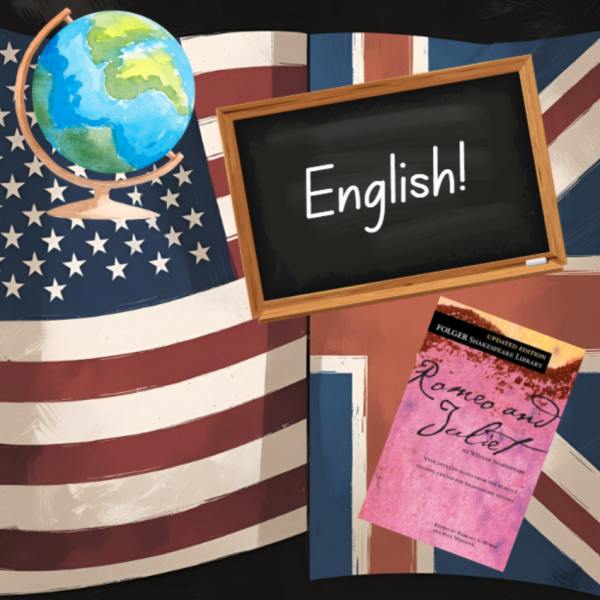What we can learn from John Lewis

Aydin and Lewis on Good Morning America.
March 4, 2022
On Friday, February 18th, March coauthor Andrew Aydin zoomed into the Radnor High School Library to talk with our RHS March Book club about his relationship with Congressman John Lewis, civil rights, and his bestselling book March, which became the first graphic novel to win the National Book Award.
Born in Atlanta, Georgia in 1983, Aydin attended Lovett High School where he was “kicked out of honors English class because they said [he] didn’t write well,” recalled Aydin. He later attended Trinity College, earning a Bachelor’s degree in public policy. After serving on various campaign staffs, such as the District Aide to Rep. John B. Larson and the special assistant to Connecticut Lieutenant governor Kevin Sullivan, he interviewed for a job on Congressman Lewis’s staff.
The John Lewis that Aydin knew, however, was not like the John Lewis we are accustomed to seeing in the public eye. The John Lewis he knew had an incredible sense of humor, loved to have a good time, and enjoyed being around other people. During his visit on Friday, he told us the story of the time Lewis and Aydin went to lunch after a book talk in Atlanta. At the meal, Aydin ordered a cherry coke (which at the time included cherry syrup), his favorite childhood drink. Upon seeing it on the menu, Lewis responded, “this sounds sinful, I should try it.” After finishing his first glass, he raised his hand in a theatrical way and told the waiter, “One more please.”
Aydin made the point that “we’ve put John Lewis on a pedestal, and he has become someone we worship rather than someone we relate to.” Unlike Reverend Martin Luther King Jr., Lewis grew up poor on a farm, having to overcome financial obstacles his entire life. In high school, he had to sneak out of his house each morning to avoid his parents forcing him to work on the family farm. While in college, he worked two jobs in addition to studying at the American Baptist Theological Seminary in Nashville. He could not even attend his college of choice, the University of Troy in Alabama, since it did not allow black students.
While watching the news, many feel as though current events have undone all the progress in civil rights made over the past century. For example, just last year, after the election of president Joe Biden, the state of Georgia passed new restrictive voter ID legislation with the goal of preventing people of color from voting. However, Aydin advised us not to give up hope: “These new discriminatory laws are a last resort to preserve a status quo that is falling apart. As students, you have power. Violent protests are ineffective, and are easy for governments to shut down. But if you organize, and make your voices heard in a non-violent way, then they have to listen to you, and they’re afraid of that.”
A trend is occurring throughout both the Radnor School District and across the country of banning books deemed misguiding towards children, particularly if they are supposedly discussing “Critical Race Theory.” Although March speaks about Lewis’s personal experience through advocating for civil rights and contains no mention of CRT, its open discussion regarding race has sometimes been subject to book banning discussions. In his meeting with us, Aydin described CRT as a “tool used by the far right to prevent us from learning about civil rights and black history in order to maintain the status quo.”
Aydin emphasized that it is easy to give up hope and believe all the progress we have made towards equality is heading down the drain, especially with the new restrictive voting laws and the claims of critical race theory that have proliferated throughout our schools. But Aydin reminded us that although we still have work to do, we have made significant progress towards civil rights; “We take ten steps forward and five steps back, but John Lewis lived for eighty years, and in that time, we’ve experienced monumental change, and although most of you are around seventeen years old, you still have to power change society for the better and to fight for civil rights.”
To value that we all have the power to make change underscored Aydin’s talk; we all have the ability to become the next John Lewis. John Lewis was not a superhero; he was an ordinary person who fought adversity his whole life to achieve extraordinary impacts in civil rights.






